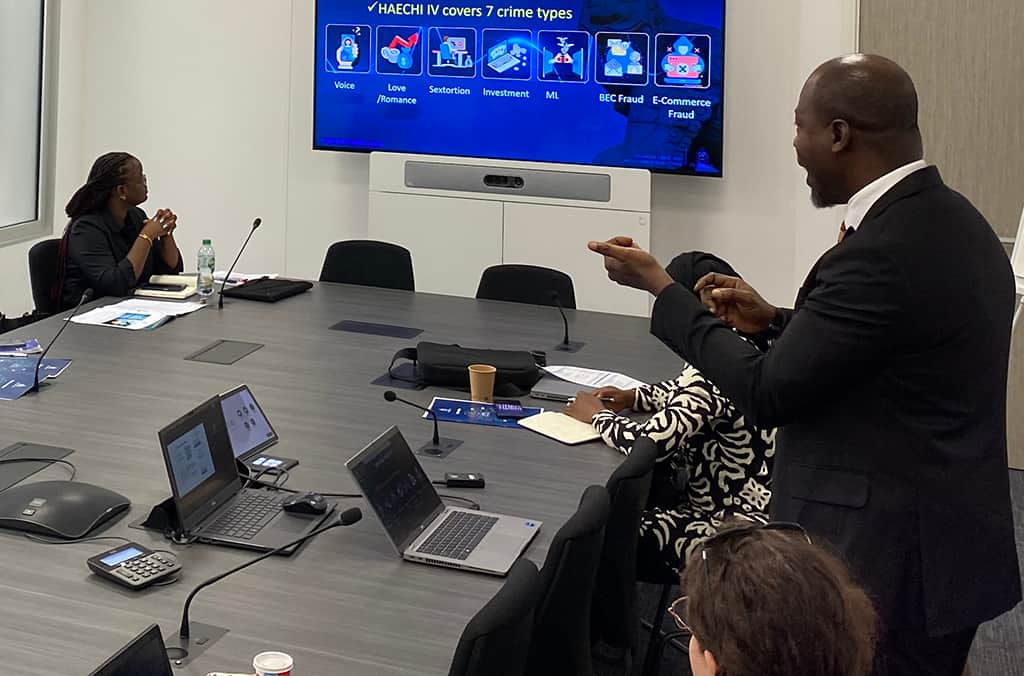SUMMARY
- Global Crackdown: INTERPOL’s Operation HAECHI V led to 5,500 arrests across 40 countries.
- Major Recovery: $400 million in stolen funds were intercepted and recovered.
- Cybercrime Targets: Focus on voice phishing, crypto scams, and business email compromise.
- Key Tool: INTERPOL’s I-GRIP initiative played a vital role in tracking illicit funds.
- Collaboration Wins: Success attributed to international law enforcement cooperation.
A global operation, led by INTERPOL, nets over 5,500 cybercriminals and seizes $400 million in stolen funds. Learn about the latest tactics used by cybercriminals and how law enforcement agencies are fighting back.
In a coordinated global effort, law enforcement agencies from 40 countries have successfully dismantled a vast network of cyber criminals, leading to the arrest of over 5,500 individuals and the seizure of more than $400 million in illicit funds.
This development follows the agency’s recent success with “Operation Serengeti,” which arrested over 1,000 cybercriminals and dismantled significant cybercrime networks across multiple African countries just last week.
Operation HAECHI V, the fifth iteration of a successful South Korean government-sponsored cyber-policing initiative was a five-month operation spanning from July to November 2024. It targeted a range of cyber-enabled frauds including voice phishing, romance scams, online sextortion, investment fraud, illegal online gambling, business email compromise, and e-commerce fraud.
INTERPOL’s Global Rapid Intervention of Payments (I-GRIP) initiative was instrumental in intercepting stolen funds and bringing criminals to justice. The agency also issued a Purple Notice, alerting countries about a new cryptocurrency fraud involving stablecoins and member countries were warned about an emerging USDT Token Approval Scam.
One of the most significant achievements of the operation was the dismantling of a sprawling voice phishing syndicate operating in East Asia with collaborated efforts from South Korean and Chinese agencies. This syndicate, responsible for defrauding over 1,900 victims of a staggering $1.1 billion, employed sophisticated tactics such as impersonating law enforcement officials and using counterfeit identification.
I-GRIP helped agencies intercept stolen funds sent to cybercriminals, preventing losses and leading to the arrest of additional suspects. In one notable case, the Singapore Police Force, in collaboration with authorities in Timor Leste, successfully intercepted $39.3 million of a $42.3 million sum stolen from a Singaporean company through a business email compromise (BEC) fraud.
In addition, in the UK’s Channel Islands, the Guernsey Financial Intelligence Unit intercepted £ 2 million ($ 2.5 million) in funds also stolen via BEC through an I-GRIP request to Portugal. This demonstrates the effectiveness of I-GRIP in combating cross-border cybercrime.
The arrest of over 5,500 individuals is certainly a commendable achievement, but it’s likely lower-level call centre operators targeting fewer victims for smaller pay-outs, said Toby Lewis, Global Head of Threat Analysis at Darktrace.
“These groups target high volumes of victims for smaller payouts, rather than the larger ransomware payouts we see from more sophisticated actors, explained Toby.“ “These are operations that typically operate at scale, stealing 1,000s of USD at a time, which then adds up, rather than a smaller number of big-time operations such as ransomware, which may net 100,000s of USD per target.“
“The stablecoin romance scams show criminals adapting classic social engineering for the crypto era – combining emotional manipulation with cryptocurrency’s complexity to trick victims into granting account access,“ Lewis stated, sharing his response on Operation HAECHI V with Hackread.com.
Nevertheless, it will have a positive impact in reducing cybercrimes. The operation’s success can be attributed to the collaborative efforts of law enforcement agencies worldwide, as well as the effective use of Interpol’s I-GRIP initiative.
INTERPOL Secretary General Valdecy Urquiza emphasized the importance of international cooperation in addressing the growing threat of cybercrime. “The borderless nature of cybercrime means international police cooperation is essential,” he said. “The success of this operation shows what can be achieved when countries work together.”
Lee Jun Hyeong, Head of Korea’s INTERPOL National Central Bureau in Seoul, praised the dedication and professionalism of law enforcement officers worldwide. “Our efforts not only brought criminals to justice but also achieved significant progress in intercepting and recovering illicit funds,” Hyeong noted in Interpol’s press release.










